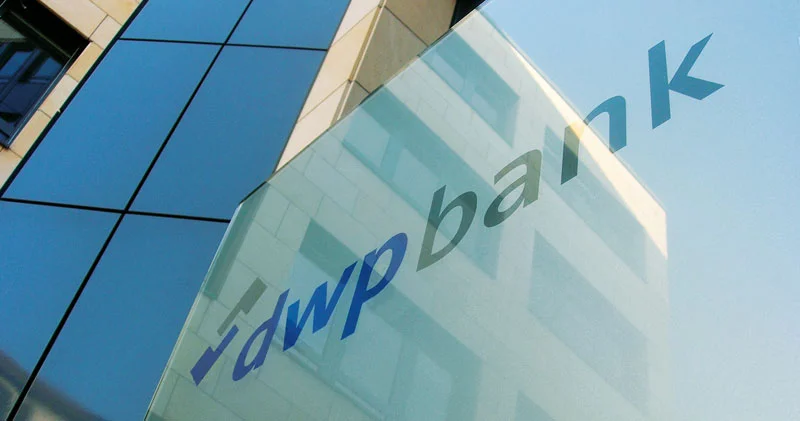Introduction
Through its role at the Department for Work and Pensions DWP Check Bank the organization ensures accurate benefit payment distribution along with minimizing fraudulent claims. The DWP performs bank account checks to supervise their benefit recipient base. This raises several questions:
- How often do DWP check bank accounts in 2025?
- Can DWP access my bank account without consent?
- What happens if DWP finds money in my account?
This paper examines the concerned issues by describing UK DWP Check Bank benefit fraud investigations alongside DWP data matching operations and contemporary DWP monitoring strategy modifications. Your comprehension of the system operations and practices for staying compliant will become clear by the article’s end.
Understanding DWP Bank Account Checks
What is the DWP, and Why Do They Check Bank Accounts?
Universal Credit and Personal Independence Payment (PIP) and Pension Credit form part of the responsibility range of the Department for Work and Pensions (DWP). The DWP performs financial tests on benefits recipients because their payouts depend on their financial eligibility.
The Role of Financial Scrutiny in Benefit Fraud Prevention
Intentional misleading of government benefit programs results in tens of millions of pounds of lost public money annually. The checking process enables DWP to detect undisclosed income together with hidden savings accounts as well as financial activities that contradict benefit claim requirements.
How the DWP Monitors Bank Accounts
Methods Used for Tracking Financial Transactions
The DWP benefit fraud investigations in the UK rely on various tools, including:
- Data matching with HM Revenue & Customs (HMRC)
- Bank account transaction analysis
- Cross-referencing benefits claims with financial records
Automated vs. Manual Bank Account Reviews
- Automated checks use AI and machine learning to scan for red flags in financial activity.
- Manual reviews occur when a claimant is flagged for potential fraud, leading to a detailed human investigation.
Legal Rights: Can the DWP Legally Access Your Bank Account?
Laws That Govern Financial Monitoring
Under the Social Security Administration Act 1992, the DWP Check Bank has legal authority to request banking information when there is a reasonable suspicion of fraud.
Claimant Privacy vs. Fraud Prevention
The protection of privacy rights covers claimants, but governments focus first on stopping fraudulent benefit claims. The DWP has authority to examine bank records when specific requirements are fulfilled even though you have not given permission.
How Often Do DWP Chethe authoritynk Accounts?
Routine Checks: Is There a Set Schedule?
The DWP bank account checks frequency varies depending on several factors, such as:
- The type of benefit received
- The claimant’s past compliance record
- Any reported changes in circumstances
What Triggers an Unscheduled Financial Review?
- A sudden increase in account balance
- A large cash deposit without explanation
- Discrepancies between declared income and actual financial activity
Red Flags That Can Lead to a DWP Investigation
Unusual Deposits and Spending Patterns
The DWP looks for irregular financial activity, such as:
- Large deposits that do not align with reported income
- Significant withdrawals that suggest undeclared earnings
Reports from Third Parties and Anonymous Tips
If someone reports suspected benefit fraud, the DWP may initiate an investigation into your financial records.
DWP Data Matching: How Your Financial Activity is Tracked
The Role of HMRC, Banks, and Financial Institutions
The DWP data matching process allows the agency to compare a claimant’s declared financial status with information from:
- HMRC (tax records)
- Banks and financial institutions
- Employment records
How Data Analytics Identify Fraud Risks
New AI-based fraud detection systems automatically flag transactions that indicate undeclared income or fraudulent activity.
What Happens If DWP Finds Suspicious Activity?
Investigation Process Explained
- Claimants receive a letter from the DWP regarding discrepancies.
- They may need to provide bank statements or attend an interview.
- If fraud is suspected, a formal investigation begins.
How Claimants Are Contacted and Required to Respond
The DWP may request:
- Proof of income and savings
- Bank statements for the last six months or more
Consequences of Non-Compliance with DWP Regulations
- Benefit suspensions or reductions
- Repayment demands for overpaid benefits
- Potential prosecution for fraud
Can the DWP Check Bank Accounts Without Notice?
While claimants are not always notified, investigations are usually triggered by suspicious activity rather than random checks.
Will the DWP Check My Partner’s or Family’s Bank Accounts?
If you have a joint bank account, the DWP can review the account’s transactions to assess your household’s financial situation.
Recent Policy Updates: Are DWP Bank Account Checks Increasing?
With new fraud detection policies in 2025, the DWP has increased its focus on real-time data matching.
Common Myths About DWP Bank Account Monitoring
❌ “DWP checks everyone’s bank accounts” daily. False!
❌ “Small cash deposits will trigger an investigation.” Not” necessarily!
How to Ensure Compliance and Avoid Issues
- Report all income changes immediately.
- Keep accurate financial records.
- Seek legal advice if unsure about DWP rules.
Support for Benefit Claimants Facing Investigations
The organization Citizens Advice provides complimentary assistance and support for individuals undergoing DWP investigations.
Conclusion
Understanding how often DWP check bank accounts can help you stay compliant and avoid penalties. Being proactive about reporting income changes and maintaining transparent financial records is key.
FAQs
How often does the DWP check bank accounts for benefit claimants?
There is no fixed schedule, but routine and triggered checks occur based on financial activity.
Can the DWP access my bank account without my permission?
Yes, under the Social Security Administration Act 1992, if there’s suspected fraud.
What triggers a DWP investigation into a bank account?
Unusual bank transactions, third-party reports, and data mismatches can trigger an investigation.
Does the DWP check all benefit claimants’ bank accounts?
No, only those flagged for potential fraud or subject to routine verification.
What happens if the DWP finds undeclared income in my bank account?
You may be required to repay benefits, face penalties, or even face legal action in severe cases.


GIPHY App Key not set. Please check settings